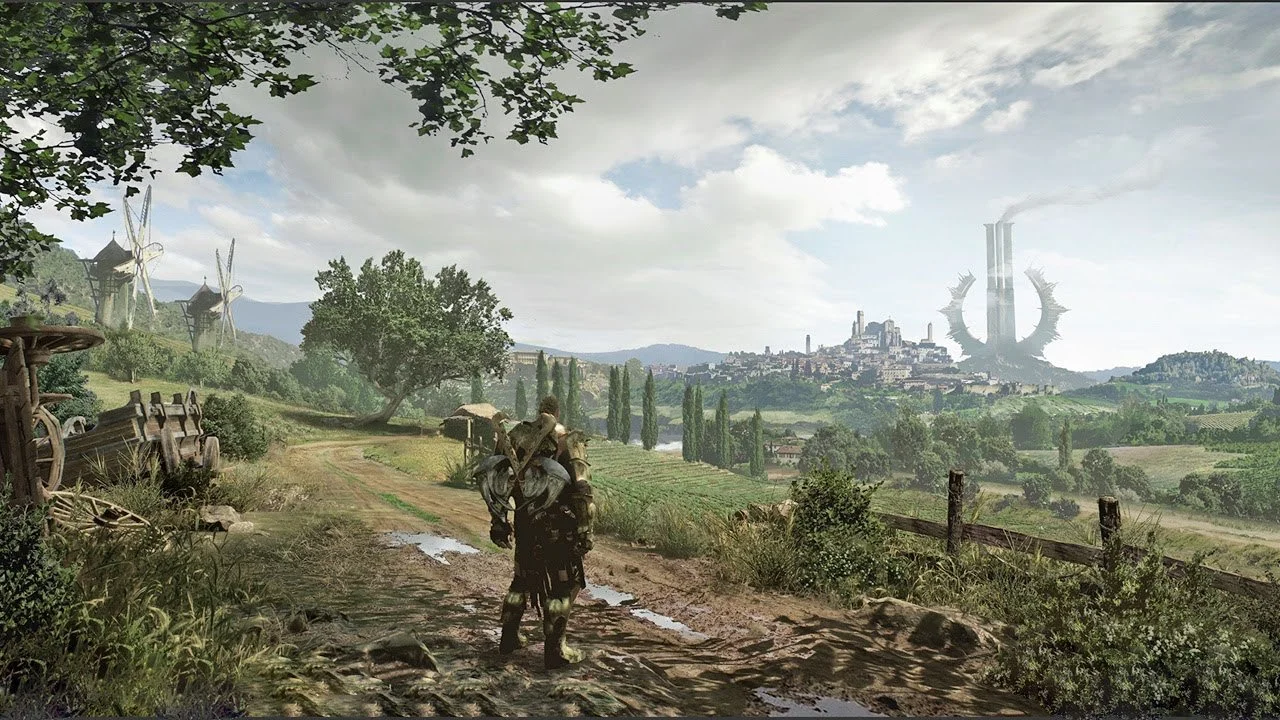Open world games have become a dominant force in the gaming industry. From sprawling universes like Grand Theft Auto V's Los Santos to the breathtaking vistas of The Legend of Zelda: Breath of the Wild, these expansive titles offer a level of freedom and exploration that was once unimaginable. But what exactly makes them so appealing? Why do we find ourselves sinking countless hours into these digital landscapes?
The answer lies not just in the sheer scale, but in the way open world games cater to a fundamental human desire: the desire for agency. Unlike linear experiences, open worlds don't dictate a rigid path. Instead, they present us with a sandbox, filled with possibilities and opportunities waiting to be unearthed. We are free to choose how we approach the world: whether we follow the main narrative, tackle side quests, forge our own path, or simply lose ourselves in the beauty of the meticulously crafted environment.
This sense of freedom translates to a potent sense of ownership. In a linear game, the story unfolds at a predetermined pace, leaving little room for player agency. Open worlds, however, empower us to shape our own narratives. Every decision we make, every path we choose, becomes a building block in our personal experience. Did you stumble upon a hidden cave while wandering off the beaten path? Did you discover a secret society through sheer exploration? These unexpected moments of discovery become ingrained in our memory, turning them into stories we can share with fellow players.
This focus on player agency has even begun to influence the way online casinos are designed. While traditional online casinos offer a selection of fixed games like slots and roulette, some innovative platforms have begun incorporating open world elements. Games like plinko casino offer a more interactive experience, allowing players to control the trajectory of virtual pucks for a chance to win prizes. This gamification of the casino experience taps into the same desire for agency and control that fuels the popularity of open world video games.
Open world games also tap into our inherent sense of wanderlust. They offer a digital escape into fantastical realms or meticulously recreated versions of our world. Whether it's scaling the majestic peaks of Skyrim or traversing the sun-scorched deserts of Red Dead Redemption 2, these games allow us to experience the thrill of exploration from the comfort of our homes. Every corner holds the potential for surprise, every horizon promises a new adventure. This sense of discovery fuels our desire to delve deeper, to uncover the secrets hidden within these virtual landscapes.
But open worlds aren't without their limitations. The vastness can be overwhelming for some, and some games struggle to fill their expansive spaces with meaningful content. Repetitive side quests and tedious traversal mechanics can dampen the joy of exploration. Additionally, the pressure to constantly "complete" the game can detract from the inherent value of simply existing within the world.
However, when done right, open world games can be truly transformative experiences. They offer a sense of freedom, ownership, and wonder that is unmatched in other forms of media. The best open world games don't just present us with a world to explore, they invite us to become a part of it, to forge our own unique stories within its vast expanse.
In conclusion, open world games offer a unique blend of freedom, discovery, and wonder that has captivated gamers of all ages. As developers continue to push the boundaries of what's possible in these digital worlds, we can expect even more immersive and engaging experiences that blur the line between reality and fantasy. So, the next time you find yourself lost in the vast expanse of an open world, take a moment to appreciate the artistry and ingenuity behind these captivating virtual realms.


















